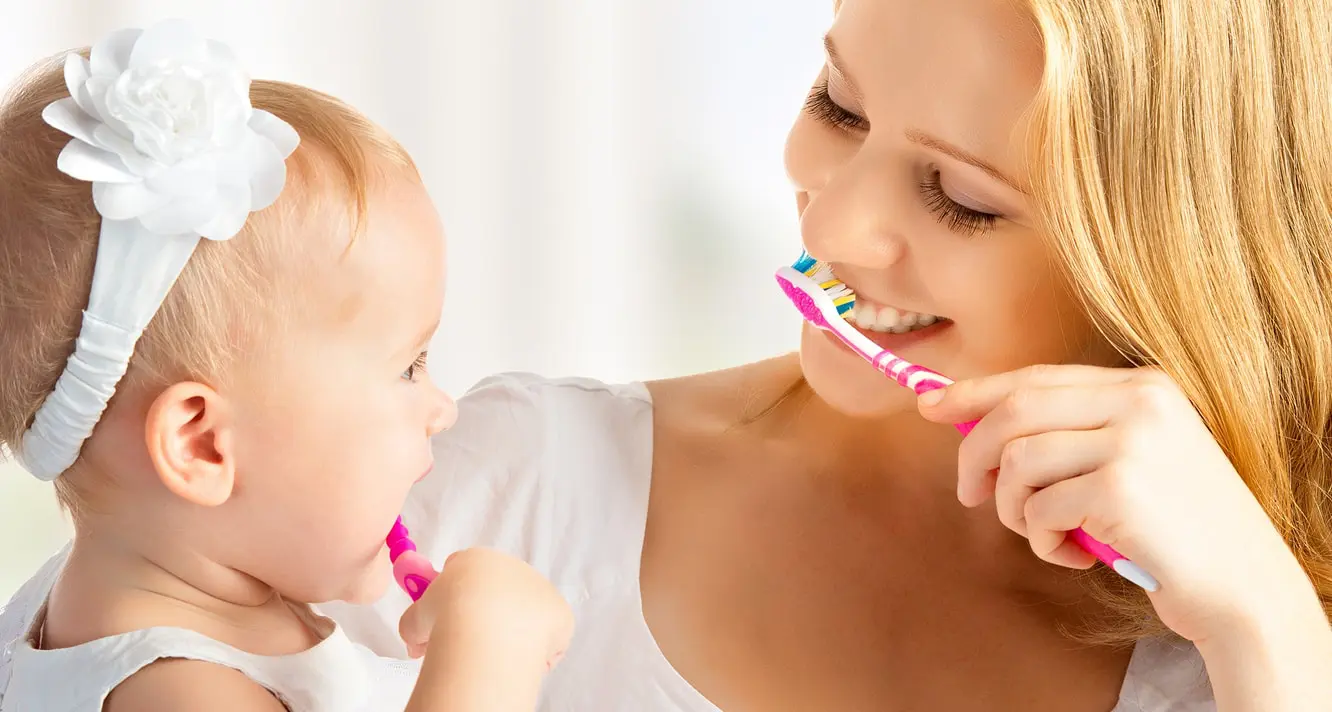
People often think that caring for their child’s teeth doesn’t really have an impact—after all, they’re going to fall out eventually! However, healthy baby teeth are actually quite important for your child’s health and development. They help your child learn to chew, smile, and speak. They also hold the space for your child’s permanent teeth to eventually fill in. If your child’s tooth is lost too early, this space can be lost as well, causing the permanent teeth to come in crooked or create overcrowding. Because protecting your child’s baby teeth is so important, we recommend taking the following steps to ensure their health!
1. Clean their teeth and gums after meals.
We recommend that you begin cleaning your child’s teeth and gums as soon as possible! This does not always require a toothbrush (particularly for infants). Within the first few days of their birth, you can begin cleaning their gums by simply wiping them with a damp washcloth or gauze pad. Once their teeth erupt from the gums, use a bit of fluoride toothpaste (no more than the size of a grain of rice) on a small toothbrush. After the age of 3, you can use a pea-sized amount of toothpaste on their teeth twice a day. By diligently cleaning your child’s teeth and gums, you’ll be able to remove the bacteria that otherwise causes decay.
2. Beware of the harmful chemicals in baby bottles.
We’ve all heard that harmful chemicals exist in plastic, but did you know that chemicals like Bisphenol A (BA) frequently appear in refillable baby bottles and food storage containers? With extended exposure, this chemical directly affects the hormones that grow your child’s dental enamel. This will impact both your child’s baby teeth and their permanent teeth, which are already present in the jawbone in their early years. Children’s dental enamel is produced from the third trimester until the age of 5, so be certain to avoid bottles with these harmful chemicals throughout this period. You’ll otherwise want to be certain to transition your child off of their bottles or pacifiers by the age of two to ensure that their exposure to these chemicals are limited.
Thankfully, there are many companies that avoid the use of harmful chemicals in their baby bottles. Now, you can find sippy cups, bottles, and food containers made of safe materials such as stainless steel, pure rubber, and even glass wrapped in kid-friendly silicone.
3. Avoid leaving the bottle in the crib.
One of the most common reasons for dental decay in children is extended exposure to their milk, formula, or juice throughout the night. This is because the sugary liquids rest on their teeth, continuously feeding the bacteria in plaque that wears down on their enamel and leading to rapid decay. For this reason, we recommend allowing your child to finish the bottle before putting them in the crib, or removing the bottle as soon as they fall asleep. You might also consider filling their bottle with water during the night instead of sugary liquids.
4. Keep your eye out for decay!
It is very important to keep your child’s baby teeth healthy so they can be sure to enjoy healthy permanent teeth as well! Keep an eye out for any spots on your child’s teeth—this is a sign of early tooth decay. More severe decay might manifest as bad breath, bleeding or swollen gums, or fever. If your child is showing signs of tooth decay, be sure to call Valley Dental Care of Plainfield right away!
If you have any questions about how to best care for your child’s teeth, or would like to set up their first appointment, call Valley Dental Care of Plainfield today.